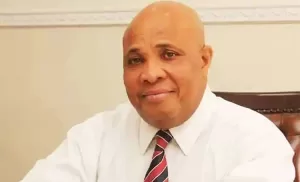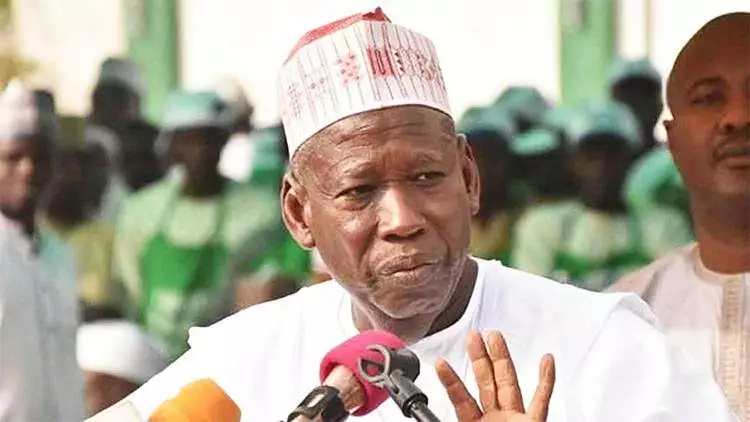By C.C. Akamadu
Historically speaking, Ndigbo are a merit-driven people. By their very nature, opportunism and mediocrity are loudly resented with no apology offered. They are highly intelligent, incredibly industrious and perhaps one of the most competitive races on planet earth. Unlike monarchical societies that can be found on all corners of the African continent, Ndigbo, as authentic republicans, place high premium on individual traits and sterling accomplishments with respect to their leadership recruitment process.
In the precolonial Igbo society, sovereignty and authority resided in the people. Men of impeccable integrity exercised authority, as agents of the people, at different layers of leadership, which included age grade, kindred and nze-na-ozo title holders.
For Ndigbo to consider anyone fit for leadership, such person must possess the requisite integrity with unquestionable commitment to community wellbeing. Such person must also be fairly prosperous and have his wealth acquired through honest and decent means.
It was in keeping with this cherished tradition that Igboland put forward her finest during Nigeria’s struggle for independence. Dr. Nnamdi Azikiwe led the charge with illustrious Igbo sons like Mazi Mbonu Ojike, Michael Okpara, Akanu Ibiam, Mokwugo Okoye, MCK Ajuluchukwu and Bob Ogbuagu equally at the battlefront. Same set of leaders, alongside their contemporaries from other regions, also dominated the Nigerian leadership firmament upon the departure of our colonial masters in 1960.
The Igboman is proud, courageous, principled and uncompromising. He is neither a hypocrite nor a bootlicker. Rather, he is firm and forthright – part of the reason some Nigerian tribes have, in the treacherous contestation for power in Nigeria, repeatedly accused him of “not knowing how to play politics”!
It took an Igboman to be decorated as “Officer of the Civil Division of the Most Excellent Order of the British Empire (O.B.E)” by His Majesty King George in 1949, as “Knight Commander of the Civil Division of the Most Excellent Order of the British Empire (K.B.E)” and as “Knight Commander of the Civil Division of the Most Distinguished Order of St. Michael and St. George (K.C.M.G.)” by Her Majesty Queen Elizabeth II in 1951 and 1962 respectively, yet he found the raw nerve to renounce all on matters of principle.
In fact, he didn’t stop there; he went further to drop his English name (Francis). That person was Dr. Akanu Ibiam of truly blessed memory, governor of defunct Eastern Region of Nigeria.
The rain began to beat Ndigbo immediately after the civil war. On account of the horrors of the civil war, the unprecedented devastation that it left behind and with no Marshall Plan in place, Ndigbo were inexorably thrown into a survivalist mode.
The second republic had presented a chance for Ndigbo to reinvent themselves and their land with Dr. Sam Mbakwe superintending over old Imo State as governor and Chief Jim Nwobodo at the helm of affairs in old Enugu State.
This window of self-rediscovery was however shut by the coup plotters that sacked Alhaji Shagari’s government on December 31, 1983. There is no doubt that the prolonged military rule that followed exacerbated the post-civil war identity crisis Ndigbo were enmeshed in, but by far the single greatest tragedy that befell Igboland was the quality of leadership, at the state level, that came with the inauguration of the fourth republic.
For some odd reason, Abia had thrown up Dr. Orji Uzor Kalu. Imo installed Chief Achike Udenwa. Anambra and Enugu had Dr. Chinweoke Mbadinuju and Dr. Chimaraoke Nnamani as State Chief Executives respectively while Ebonyi fell under the leadership of Dr. Sam Egwu (who was, in fairness, remarkably more purposeful than his peers). With characters like these saddled with the responsibility of charting a new course for Ndigbo, it was only natural for the rain that started beating Ndigbo in 1970 to come down in torrents…with thunder and lightning, too.
Ever since, things have grown from bad to worse. The seeds of 1999 had since become trees and borne fruits; it is the fruits that have rapidly contaminated the value system of Ndigbo and altered, for ill, their established socio-cultural and behavioural patterns. Truly, leadership is everything. For failing to put their best feet forward in 1999, Igboland is paying heavily that.
This foregoing presents an explanation for the current mood and resolve of Ndigbo – their intelligentsia, clergy, business and professional leaders, traditional institution, market and community leaders as well as town unions – to reverse the trend and return their land to path of glory. Anambra is arguably the leading state in this effort. Since the days of Dr. Chris Ngige as governor, it has not looked back; for neither Mr. Peter Obi nor Chief Willie Obiano went close to the abysmal performance of Dr. Mbadinuju. This is quite commendable.
On its part, Enugu appears to be oscillating power between performance and non-performance with the Chimaroke Nnamani-Sullivan Chime-Ifeanyi Ugwuanyi scenario. Ditto Ebonyi with her Sam Egwu-Martin Elechi-Dave Umahi outlook.
Abia and Imo appear be trapped in a web progressive retrogression. Orji Uzor Kalu and Achike Udenwa were alike in several material respects, and they both handed over power to incompetent successors who sank their respective states deeper into the cesspit of underdevelopment and moral quagmire. That is not all, their present governors have performed worse than their predecessors-in-office, hence the clamour for their forceful political retirement next year through the ballot box.
For Abia, things appear to be looking up with the growing mass appeal Dr. Alex Otti’s governorship aspiration is enjoying. If Dr. Otti triumphs at the poll, it would be hope-rising for Abians who cannot wait to join Anambra in having a renowned economist and seasoned technocrat as its chief executive.
With the prospects of Abia beginning its journey to redemption next year and Ebonyi and Enugu equally having opportunities to craft a great future for themselves by electing the right people as governors, all eyes will be on Imo’s off-season governorship election later 2023. And the big question is: can Imo people muster enough courage to radically depart from their past record of making birds of same plumage governor? They all look alike – especially their profiles. After the unrivaled Chief Sam Mbakwe, the nearest Imo has come to competent and decent leadership, many believe, was in late Engr. Ezekiel Izuogu’s governorship bid and most recently the 2007 spectacular outing of Chief Martin Agbaso – another brilliant economist and man of the people, with a good head on the shoulder. He actually fits the elaborate description of an Igboman above. As the quest for good governance and moral reawakening sweeps across Igboland, the best of Imolites which Chief Agbaso represents are challenged to offer themselves for service, so that this salvation can go round. Imo people deserve a better deal – Run Agbaso Run! A new Ala-Igbo is possible.
Akamadu contributed this piece from Abuja






